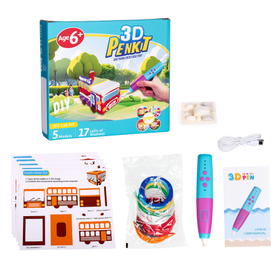The representative characteristics of fluororesin coating, specifically Teflon coating, are "heat resistance and cold resistance." This will be explained in detail.
■Reasons why fluoropolymer (PTFE) excels in heat and cold resistance The molecular structure of PTFE consists of carbon-carbon (C-C) bonds surrounded completely by fluorine atoms (F). The breaking of C-C bonds or C-F bonds at high temperatures is one aspect of "PTFE degradation." The C-C bonds are less likely to break because they are protected by the fluorine atoms (F). The bond strength of C-F bonds within PTFE molecules is significantly greater than that of bonds between other atoms. Additionally, the high bond energy of C-F bonds is another reason for its excellent heat and cold resistance. ■Applications utilizing the heat and cold resistance of fluoropolymers In the case of fluoropolymer coatings, for example, baking molds utilize the non-stick properties provided by the coating to prevent baked goods from sticking to the mold. Furthermore, since it also possesses heat resistance, it can be safely used in applications such as baking in an oven. Additionally, in household irons, the heat plate is coated with fluoropolymer to take advantage of its smoothness and heat-resistant properties. For more details, please click the link or contact us.
Inquire About This Product
Related Videos
basic information
Fluororesin coatings are functional coatings that possess excellent properties such as: - Non-stick - Water and oil repellency - Heat and cold resistance - Low friction - Chemical resistance - Electrical properties Yoshida SKT has been engaged in fluororesin coating since 1963. In 1968, we signed a licensing agreement with DuPont in the United States. Among industrial fluororesin coatings, only manufacturers certified by Chemours (formerly DuPont) are permitted to use the name "Teflon (TM) coating." At Yoshida SKT, we provide coatings that maximize the properties of fluororesins tailored to our customers' needs. We respond flexibly from single items to mass production. Whether it's mass-produced items or a single part for a machine that exists only in one factory, we propose processing that suits the application and usage environment. We can handle everything from fine precision parts to large tanks. We can process a variety of items, from precision components active in cutting-edge fields to tanks with a depth of 6 meters, using our in-house equipment.
Price information
Delivery Time
Applications/Examples of results
Please feel free to contact us.
catalog(1)
Download All CatalogsNews about this product(1)
Company information
To maximize the performance of manufacturing equipment and machine parts, Yoshida SKT derives the "optimal solution" tailored to our customers from hundreds of surface treatment technologies. - Decreased productivity due to adhesive troubles - Instability in product quality due to friction - Early deterioration of equipment due to corrosion We respond to these challenges in the manufacturing field with our extensive track record and reliable technical expertise. In 1963, we began fluoropolymer processing. In 1968, we signed a licensing agreement with DuPont (now Chemours), supporting manufacturing innovations for over 2,000 customers across various industries, from automotive to medical and aerospace. Furthermore, in 2024, we are focusing on the development of next-generation products, such as PFAS-free coatings, contributing to the advancement of sustainable manufacturing. With a three-base system in Nagoya, Tokyo, and Yamaguchi, we flexibly respond to both mass production and custom orders. Our consistent quality management system ensures that we deliver reliable quality. For solving challenges in the manufacturing field, trust the surface treatment experts at Yoshida SKT.














